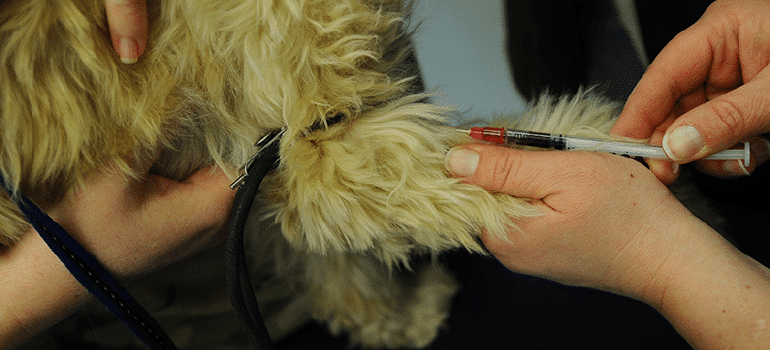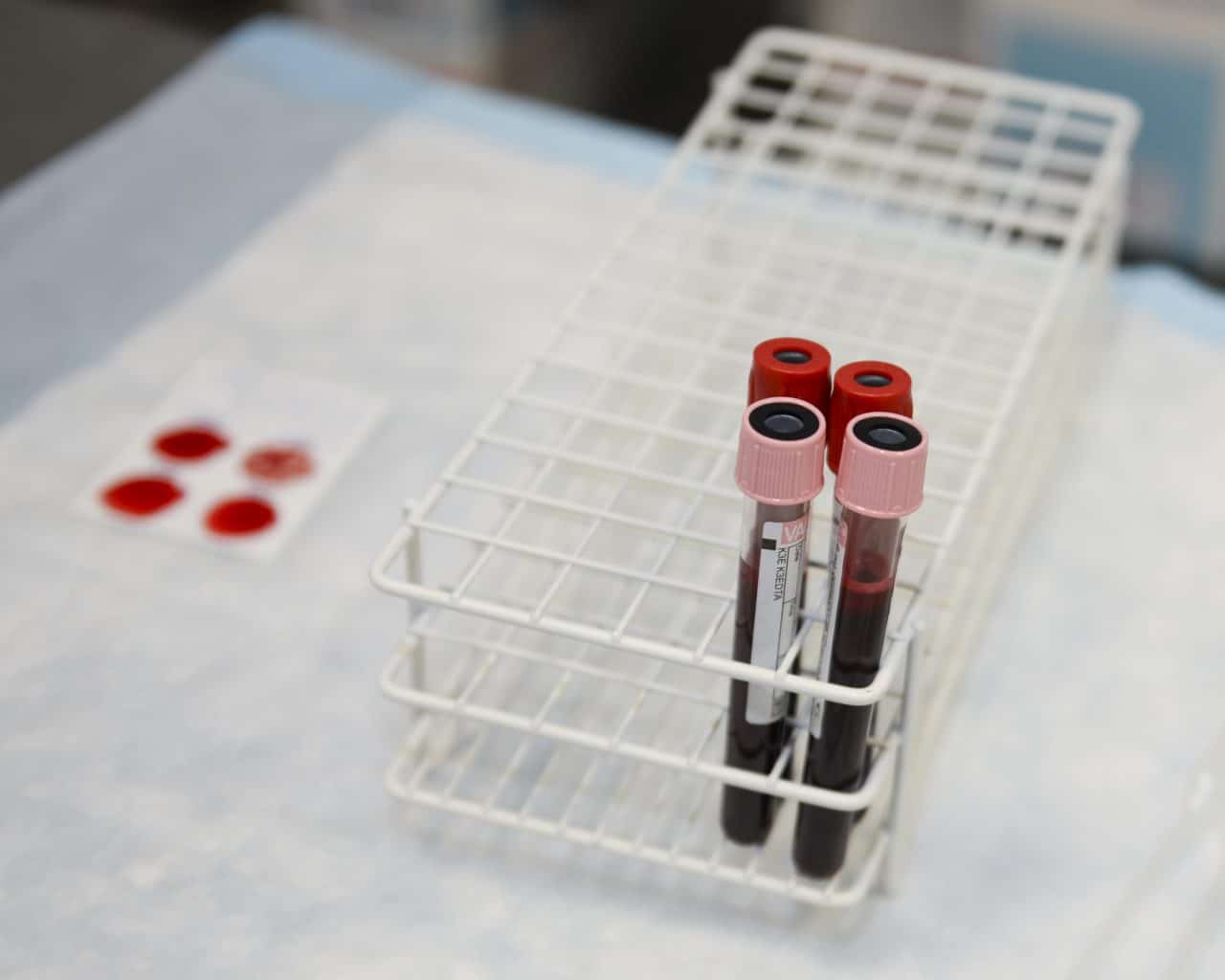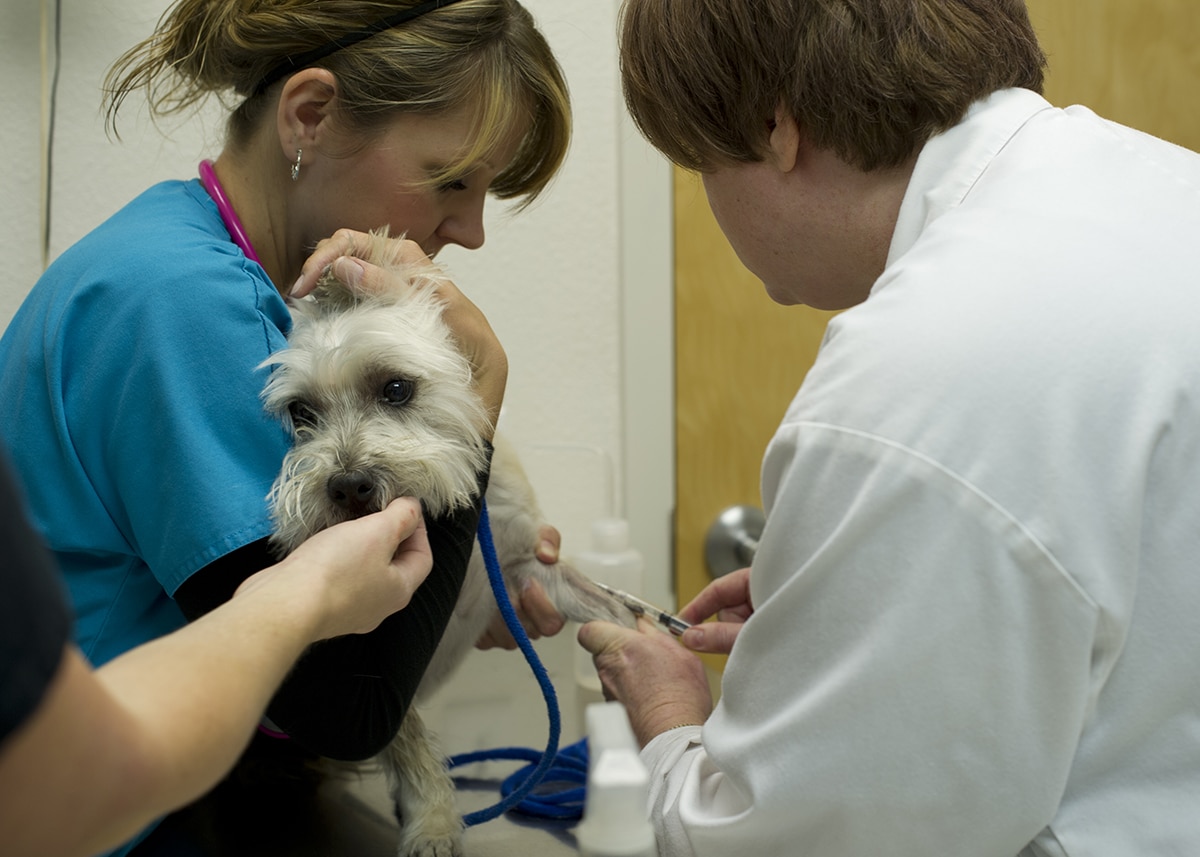Pets communicate their health through their behavior and their appearance, and as their pet parent you play an important part in keeping them happy and healthy. Regular wellness exams, at least once a year, that include blood work are the most effective way for you to keep track of their health and medications.
Blood work is a necessary, but often overlooked, part of wellness exams and routine health care. Most of the blood work recommended by your veterinarian can be performed and tested right in-clinic. This allows for you to receive information quickly, limiting multiple trips to the doctor and expense to you, the owner.
Here is a short list of some of the times, but not all, that your veterinarian may want to run blood work on your pet:
- Sick and emergency situations– helps the vet see a key part of your pet’s health so they will have the information and ability to react quickly to help diagnose and treat your pet.
- Pre-anesthetic testing– a routine screening before any surgery or procedure requiring your pet to be under anesthesia. This allows the veterinarian to have a snapshot of your pet’s current health status and weigh the risks of putting them under anesthesia.
- Preventative care screening– should be a part of your pet’s routine exam to check for non-visual signs that your animal may be sick. It can also uncover diseases before treatment is too late, and prevent significant medical expenses.
- Medication monitoring– if your pet is on any medication, the blood work is used to ensure he is receiving the proper dose, or to help the veterinarian make any necessary adjustments.
When lab work is recommended it typically includes the following tests:
- Complete blood count (CBC) – checks for infection, inflammation, and anemia.
- Complete blood chemistry panel – gives information about liver, kidney, pancreas, and other body functions.
- Urinalysis – checks for infection and inflammation in the urinary tract.
- 4dx – tests for heartworm disease and exposure to tick-borne diseases.
If you have questions about blood work or need to schedule an annual exam for your pet, call Grand Valley Animal Hospital at 701.757.3500.





